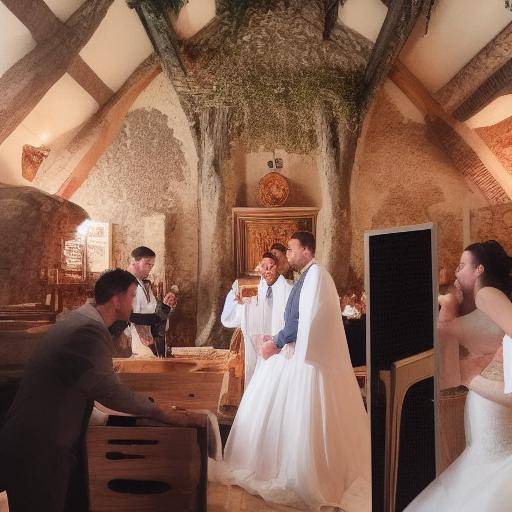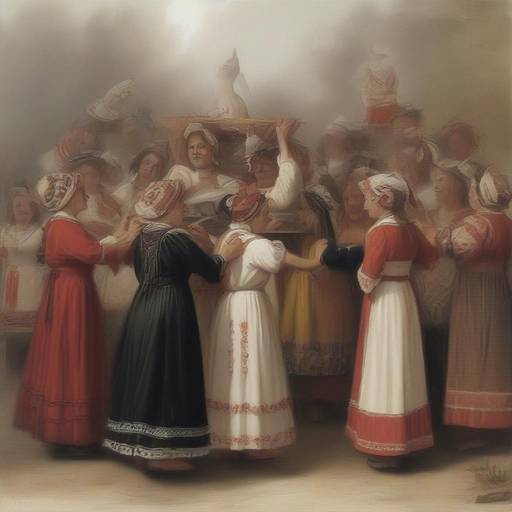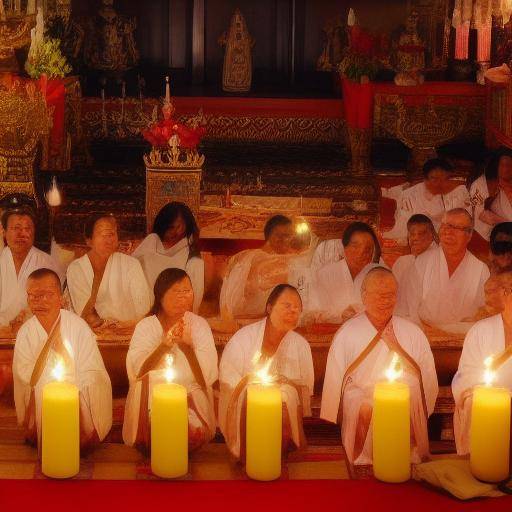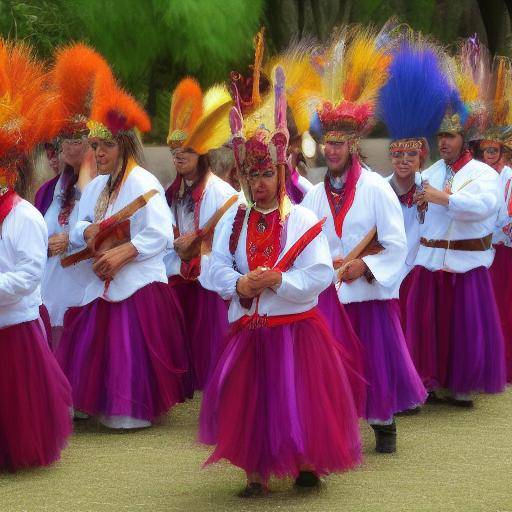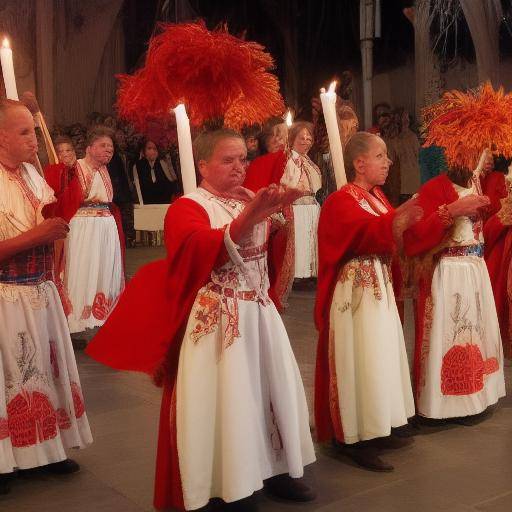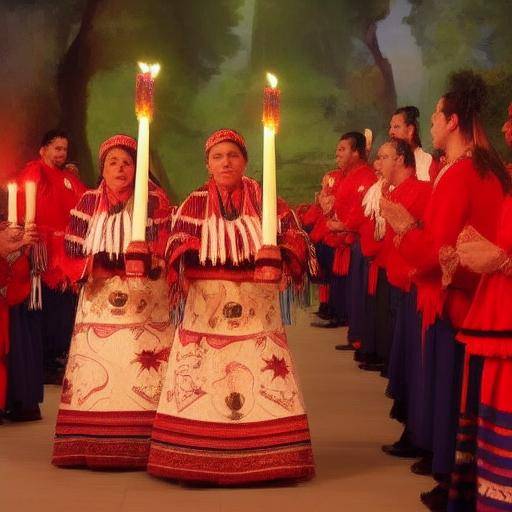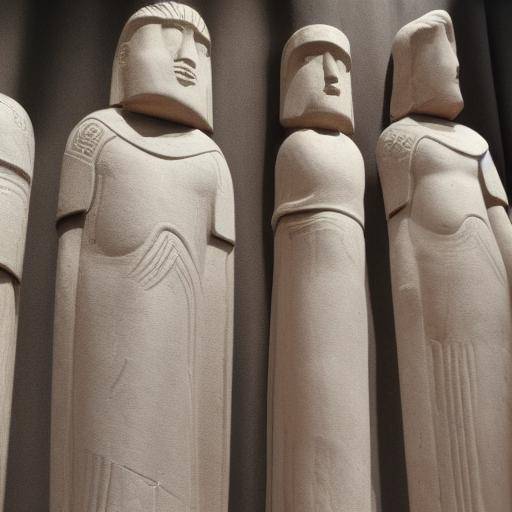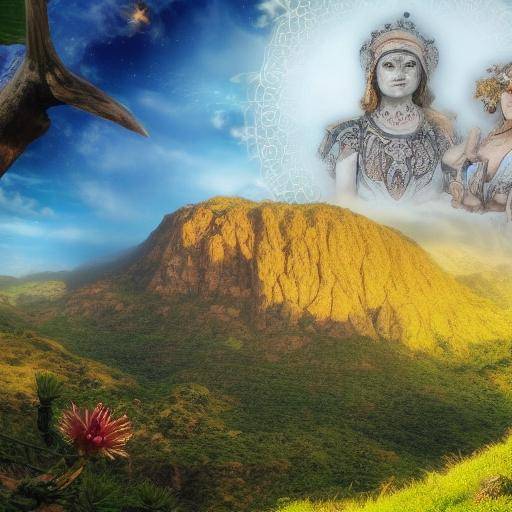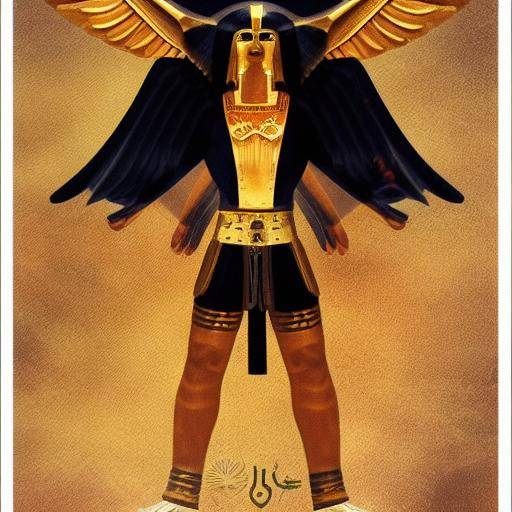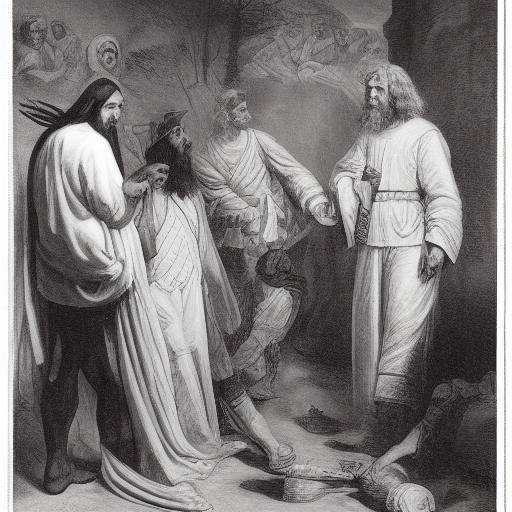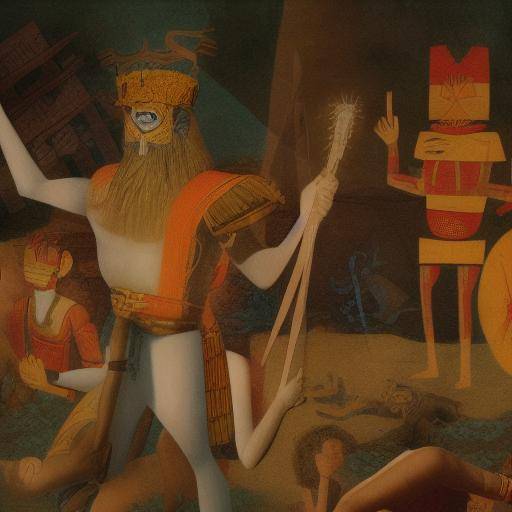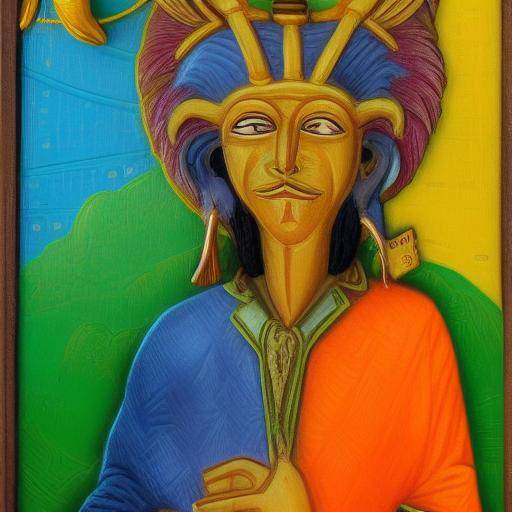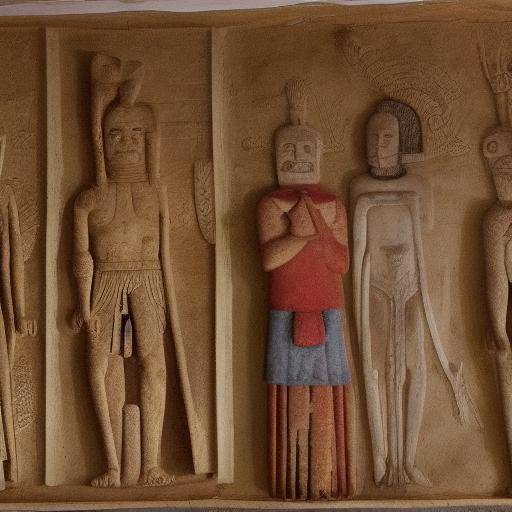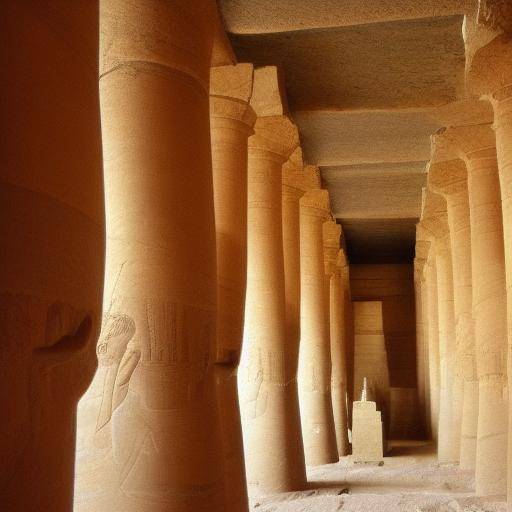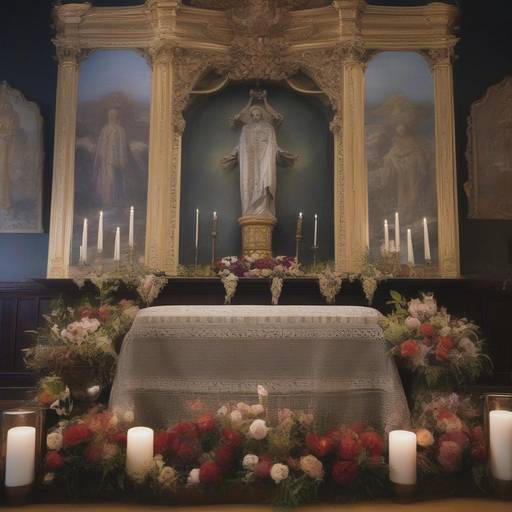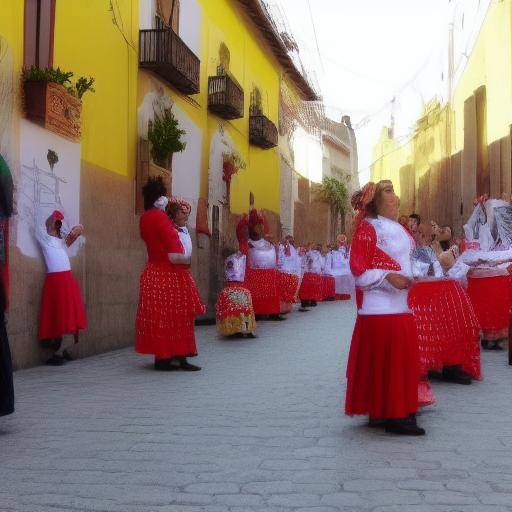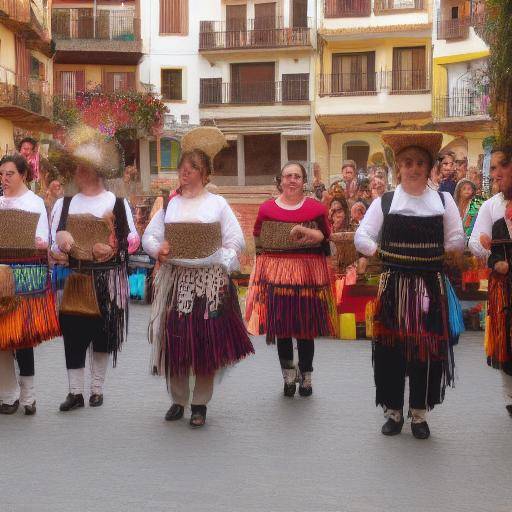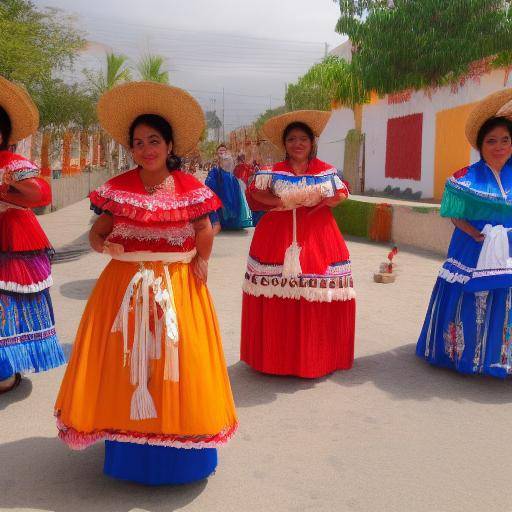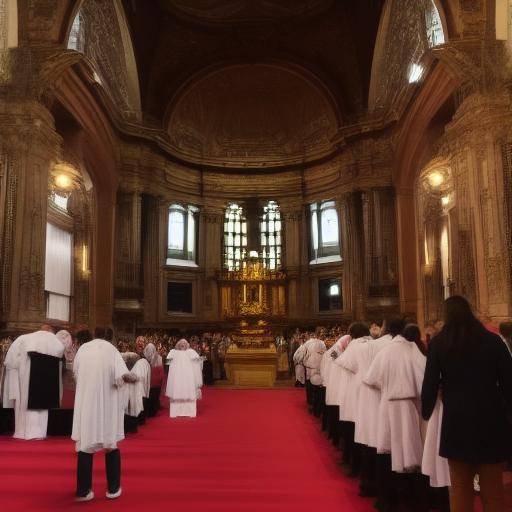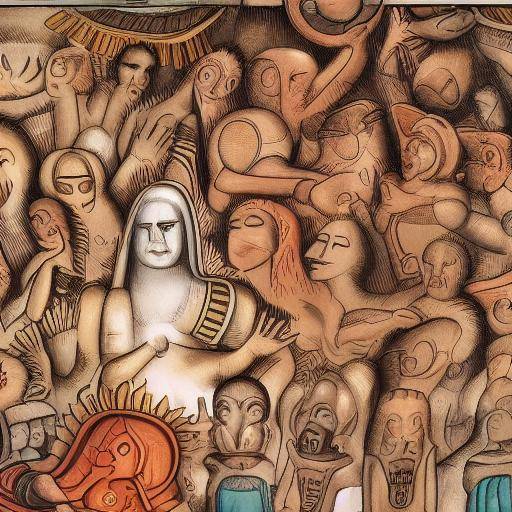
Introduction
Egyptian mythology is a fascinating mosaic of gods, rituals and traditions that have intrigued mankind for millennia. At the heart of this rich culture are the rites of initiation, an ancestral practice that has shaped the spirituality and thought of ancient Egyptian civilization. In this article, we will explore in depth the rites of initiation into Egyptian mythology, its meaning, its evolution throughout history and its relevance today. In addition, we will analyze the connection between initiation rites and rituals within this amazing tradition.
History and Background
Egyptian mythology dates back thousands of years, with its origins lost in the mist of time. His complex network of gods, deities and rituals has left a profound mark on the history of humanity. The ancient Egyptians considered that the rites of initiation were essential to the transition of youth to adulthood, as well as to access the sacred knowledge and mysteries of the universe. These rituals were intimately linked to the worship of the gods and to the understanding of the cosmic principles governing their cosmogony.
Evolution of the Initiation Rites
Over time, the rites of initiation into Egyptian mythology experienced significant changes, adapting to the cultural and socio-political transformations of civilization. From the sacred ceremonies related to the consecration of the Pharaohs to the rituals carried out by the different castes or guilds, the rites of initiation played a crucial role in the structure and cohesion of Egyptian society. These rituals were regarded as an indispensable step on the road to enlightenment and understanding of divine principles.
Importance and Meaning
The rites of initiation not only had a spiritual meaning, but also constituted a way of maintaining social cohesion and cultural continuity within Egyptian society. Through these rituals, esoteric knowledge, practical skills and moral values that supported the functioning of civilization were transmitted. These rites infused a deep sense of identity and purpose in those who experienced them.
The Relationship between Initiation Rites and Rituals
Within Egyptian mythology, rituals were an external manifestation of the rites of initiation, acting as vehicles to channel divine power and invoke the influence of deities. These rituals were intertwined with natural cycles, religious holidays and community expectations. The priests and priests played a central role in the realization of these rituals, establishing a link between men and the gods.
The Legacy of the Initiation Rites in the News
Although ancient Egyptian civilization disappeared millennia ago, its legacy endures until today. The rites of initiation and Egyptian rituals have left a profound mark on numerous spiritual and mystical traditions, being the starting point of many contemporary practices. The influence of these rituals is also perceived in modern art, architecture and philosophy, manifesting itself in the constant search for enlightenment and transcendence.
Conclusion
In conclusion, the rites of initiation into Egyptian mythology represent a fascinating and essential aspect of this rich cultural tradition. Through these rituals, the ancient Egyptians transcended the limits of the ordinary, persecuting the union with the divine and the knowledge of the mysteries of the universe. The practice of initiation rites not only shaped the worldview of Egyptian society, but also left a lasting legacy that continues to nurture the spiritual pursuit of humanity today. By understanding the importance and meaning of the rites of initiation and its relation to rituals within Egyptian mythology, we can better appreciate the depth of this ancient tradition and its lasting impact on the history of humanity.
Frequently asked questions
What was the main purpose of the rites of initiation in Egyptian mythology?
The rites of initiation had as their main objective to mark the transit of youth to adulthood, as well as to facilitate access to sacred knowledge and divine mysteries. These rituals had a strong spiritual and symbolic component, intended to prepare individuals to assume roles and responsibilities within Egyptian society.
What role did priests play in performing rituals in Egyptian mythology?
The priests occupied a central place in the execution of the Egyptian rituals. His function was to act as intermediaries between men and gods, channeling divine power and ensuring the proper realization of rituals. The priests were trained in esoteric knowledge and ritual practices, ensuring the purity and effectiveness of the ceremonies.
How have Egyptian rites of initiation influenced other spiritual and mystical traditions?
Egyptian rites of initiation have left a profound mark on numerous spiritual and mystical traditions throughout the world. Key elements of these rituals, such as the search for enlightenment, the overcoming of evidence and the connection with the divine, are present in contemporary practices such as alchemy, masonry and various esoteric currents.
To what extent are Egyptian rituals relevant today?
Despite the temporal distance, Egyptian rituals remain relevant today, influencing spirituality, mysticism and art in many cultures. The search for transcendence, the connection with the divine and the symbolism of the Egyptian rituals continue to resonate in the contemporary worldview, showing the perdurability of this ancient tradition.
Are there similarities between Egyptian initiation rites and other ancient traditions?
Yes, they can identify similarities between Egyptian initiation rites and those of other ancient cultures. The transition from youth to adulthood, the learning process and the connection with the sacred aspects of life were common elements in many ancient traditions, reflecting universal concerns and values of human condition.
What is the most significant legacy of initiation rites in Egyptian mythology?
The most significant legacy of initiation rites in Egyptian mythology is its ability to foster spiritual search and personal development. These rituals not only conveyed practical knowledge, but also inspired the initiates to explore the profound mysteries of the universe and to seek union with the divine, laying the foundations for spiritual evolution and transcendence.
In short, the rites of initiation into Egyptian mythology represent a fundamental aspect of this rich cultural tradition, whose impact extends far beyond the borders of time and space. By understanding the importance of these rituals and their relationship with rituals within Egyptian mythology, we can better appreciate the profound influence they have had in the history of humanity and its continued relevance in the contemporary world.






